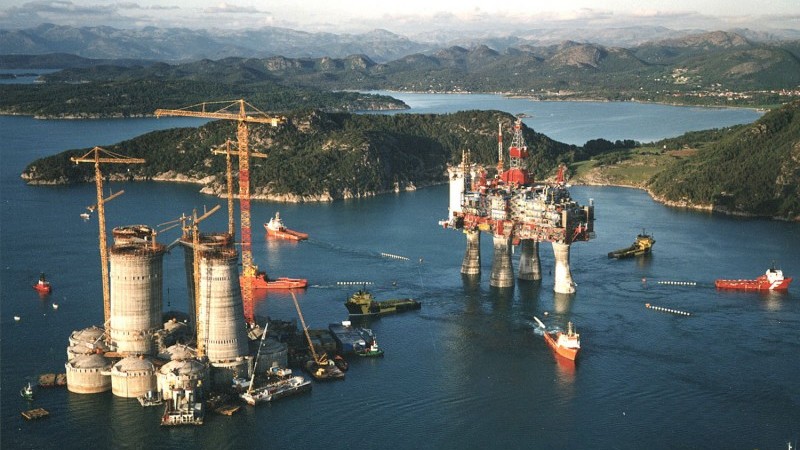Norway has a general election on Monday. The future of its oil industry has become – to the surprise of the three largest parties – one of the most debated and divisive campaign themes.
A recent poll found that 44% of Norwegians believe Norway should keep oil in the ground to reduce emissions, against 42% who think not. Support for parties that want to ban new oil investments has grown significantly. Those parties will not win a majority, but could end up with the balance of power in parliament.
This is a big deal. As shown in a recent report by Oil Change International, Norway is the world’s seventh largest exporter of carbon emissions. Our current oil projections are at odds with the goals set out in the Paris climate agreement. Stopping new licenses could change that.
As an environmental campaigner who has spent most of his adult life arguing that the world has already found more fossil fuels than we can afford to burn, I would love to claim credit for this shift. But really it is the convergence of several factors, not least an increasingly strong economic case for reducing reliance on oil revenue.
Firstly, the signing of the Paris Agreement and the aim to limit global warming to 1.5C gave new life to the understanding of a definite carbon budget. If we are to stay within that limit, it is possible to calculate how much fossil fuel can be burnt. It is clear that emissions from new Norwegian oil and gas fields are incompatible with that budget. In particular, the new and upcoming Green Party has been very active in presenting this logic.
Secondly, as the oil industry has expanded further and further north in their reckless hunt for new areas to drill, it has become clear to Norwegians that continued expansion of the oil industry will impact increasingly sensitive areas. We’ve fought for years to keep the pristine and productive Lofoten Islands off limits, but also the expansion towards Bear Island and the Arctic ice edge has sparked significant concern. The oil industry’s assurances, that they always operate safely, sound more hollow than ever, especially in light of their own trend analysis that shows an increased frequency of accidents.
Even in an environmentally aware nation like Norway, the carbon logic and sensitive, pristine landscapes alone, have never been enough to constitute a threat to the power of the oil lobby. What changed?
It seems that the oil price crash starting in 2014 has been pivotal. Initially, the crash led to significant layoffs in the oil industry. The government responded with massive new licensing rounds to help oil workers back to work, since they had few other employment ideas.
At the same time, another stream of thought arose: is the oil industry really a safe industry for long-term careers and income? Are really oil investments always good investments? Or is our future prosperity better served by low carbon industries?
The question marks raised behind the old oil narrative has given the conversation about the needed “green shift” more prominence with unions, politicians and activists alike.
The electric car revolution, which we as Norwegians have been at the center of with our record EV numbers, was suddenly understood as something real that may undermine oil demand on the global level, and leave us with stranded oil assets in the cold north. “Carbon risk” has become a household word.
In summary, it seems that the combined effects of increased climate awareness, concern over oil drilling in ever more sensitive areas, renewed uncertainty over the economic and jobs benefits from further oil investments and higher awareness of the ongoing renewable energy revolution has reduced the power of the oil lobby in Norway during this election campaign.
It remains to be seen how many voters will actually cast their vote for one of the small parties that are arguing for reduced oil investments, and how much power these may get in a future government coalition.
I am convinced that continued campaigning to keep oil in the ground to protect jobs and the climate will land on far more fertile ground in Norway in the coming years than it has in the past. An interesting test coming up after the elections will be Greenpeace and Nature and Youth’s landmark court case against the Norwegian state’s oil drilling in the Arctic.
Whatever the final election result, I really hope that the new Parliament will take their environmental mandate seriously, and that the clear shift in public opinion will allow this tiny oil nation to show the way towards a just and orderly transition from oil to renewables. As the rest of the world moves on from fossil fuels, I don’t want to see my own country get left behind.
Truls Gulowsen is head of Greenpeace Norway
